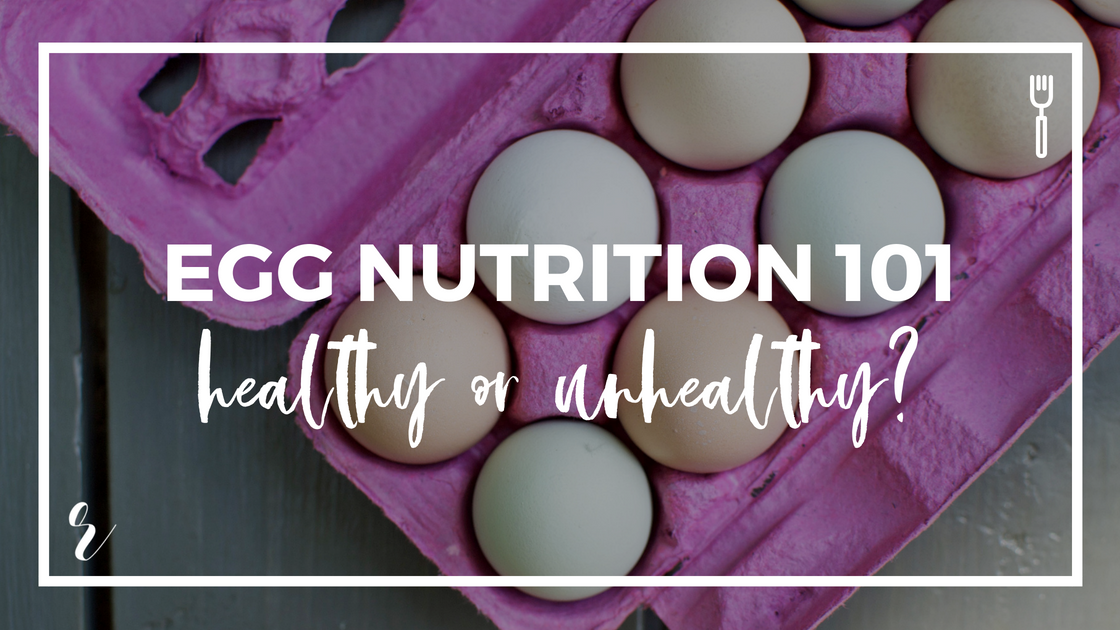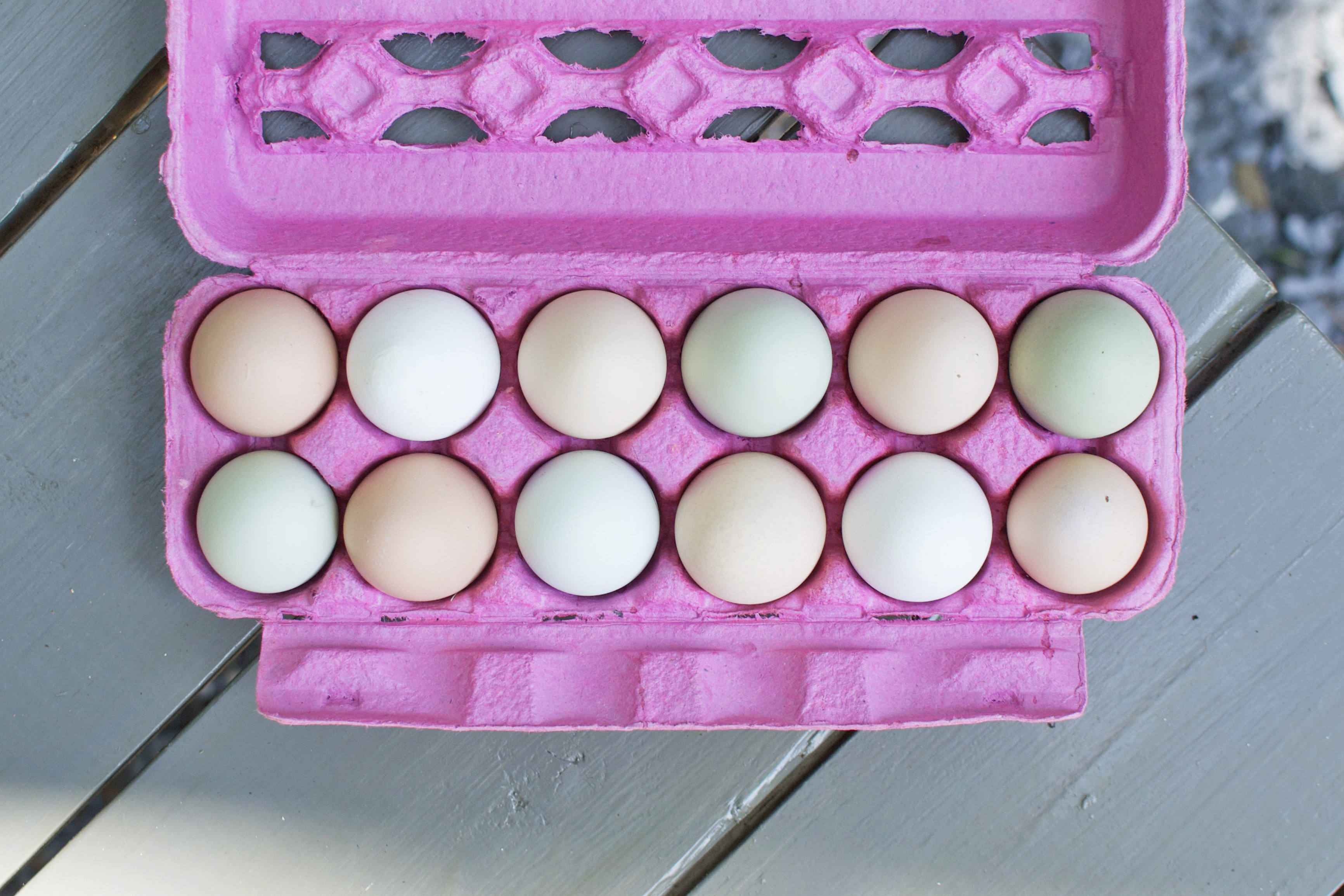If you’re like me, then you probably want to throw eggs at nutrition media. They’re egging you on – the back & forth, healthy today unhealthy tomorrow, food recommendation roller coaster can be frustrating and discouraging. What the heck am I supposed to eat?? How did the food that was good for me suddenly become bad for me? I can’t really digress… all my eggs are in this topical basket.
Butter example.
Take butter for example. Dr. Mark Hyman lays it out. La crème de la crème since forever. In the ’50s, a researcher at the World Health Organization proposes that saturated fat raises cholesterol and increases risk for heart disease. Then the American Heart Association jumped on board, and fake-butter known as margarine grows in popularity. Butter became unhealthy in the public eye. Then came the low-fat generation. The ’70s and ’80s witnessed a food shift from home-cooking to fast food and convenience food consumption, securing fake-butter’s footing in the Standard American Diet (makes me SAD too…). Perhaps 2010 began the shift back to “fat is our friend” with a 21-study meta analysis that concluded no connection between sat fat and heart disease. Couple that with The Paleo Diet’s rage for grass-fed butter, The Ketogenic Diet’s high fat approach, and the functional medicine and functional food movement – and you’ve literally polarized the entire nation’s perception of butter once again.
Evidence-based lifestyle.
I have an idea. Rather than regularly feeding people biased opinions based on individual studies, I’ll feed you hard [boiled] data and allow you to draw your own nutritional conclusions. Maybe the problem isn’t the research, but our face value “just tell me what to do and I’ll do it” mentality. Teach a human to cook eggs and human will feast on eggs for a lifetime. Pretty sure that’s how it goes…

Serving size = 1 large, uncooked egg. % Daily Value based on a 2,000 calorie diet per day. Data from SELF NutritionData.
Calories
72 calories. 4% of your daily value (DV). 72 is exactly 3.6% of 2,000 calories. If you’re limiting calories, consider that a 3 egg veggie omelet may only total 300 calories, but keep you satisfied longer than higher carb breakfast options.
Protein
6 grams. Adult females should aim for 46 grams per day. Adult males – 56 grams per day per the National Academies Dietary Reference Intakes: Macronutrients worksheet. 2 eggs for 12 grams of protein and you’re well on your way to a sufficient protein intake! Protein is made up of building blocks called amino acids, 9 of which are essential (you don’t make them in your body). Egg protein contains all 9 essential amino acids.
High protein diets are still hot these days. Why? (1) The standard American diet often leaves you with way too many carbs and less than your 46 g or 56 g of protein a day. (2) Protein takes longer to digest than low-fiber carbs, minimizing your cravings throughout the day.
Carbs
0.4 grams. We’ll round down to 0 grams and call it carb-free. If processed carbohydrates are practically your addictive substance, eggs offer a no-carb protein-rich alternative for breakfast, boiled as a snack, and on your lunch or dinner time burrito bowl or stir-fry.
Fat (Lipids)
- Total fat = 5 grams. 8% DV. The trendy thinking right now is that fat will help you lose fat. Why? Satiety. Fat keeps you full longer than processed carbs and sugars. Consider replacing the sugar in your diet with low-processed or whole food based fats like eggs (duh), avocado, nuts, nut butters, seeds, virgin olive oil, virgin coconut oil and grass-fed butter.
- Saturated fat = 1.5 gram. 8% DV.
- Monounsaturated fat = 1.9 grams.
- Polyunsaturated fat = 0.7 grams.
- Cholesterol = 211 mg. 70% DV. Does dietary cholesterol affect blood cholesterol and potentially build up arterial plaque? The 2015-2020 guidelines say limiting cholesterol intake may reduce your risk of heart disease as an adult. However, there is some counter research to consider. This systematic review on 60+ year old people showed that those with high LDL cholesterol (LDL-C) lived as long or longer than those with low LDL-C (with a few limitations). “Growing evidence points to refined carbohydrates, especially [sugar sweetened beverages], as being linked to risk of [coronary heart disease]”. Worth a revisit!

Vitamins
- Vitamin A = 244 IU. 5% DV.
- Vitamin D = 17.5 IU. 4% DV. Disclaimer: less than 5% DV is considered a “low” amount of a micronutrient. I opted to include DVs as low as 3% for those who eat 2+ eggs per meal or snack.
- Vitamin B2 (Riboflavin) = 0.2 mg. 14% DV.
- Vitamin B5 (Pantothenic Acid) = 0.7 mg. 7% DV.
- Vitamin B6 (Pyridoxine) = 0.1 mg. 4% DV.
- Vitamin B9 (Folate) = 23.5 mcg. 6% DV. (Methyl / activated form linked for MTHFR gene mutations).
- Vitamin B12 (Cobalamin) = 0.6 mcg. 11% DV.
Note: if you’re deficient in any of the above vitamins, I linked one of our favorite supplement brands for the price. Always check with your healthcare provider first!
Minerals
- Calcium = 26.5 mg. 3% DV.
- Iron = 0.9 mg. 5% DV.
- Phosphorus = 95.5 mg. 10% DV. (Bone health supplement containing Phosphorus).
- Zinc = 0.6 mg. 4% DV.
- Copper = 0.1 mg. 3% DV. (Supplement contains copper & zinc).
- Selenium = 15.8 mcg. 23% DV.
Note: deficient? Follow these links for NOW Foods supplements. Check with your doctor first!
Antioxidants
- Rich in the antioxidants lutein & zeaxanthin, says Healthline. They can protect your eyes against sun damage and reduce your risk of eye diseases. In general, antioxidants combat cancer-causing substances in your body called free radicals.

To eat or not to eat?
- Are eggs a processed food? No.
- Whole food? Yes.
- Nutrient dense? Yes. Nutrient density means more nutrients for lesser calories. A food has a LOW nutrient density if the calories are high and the nutrients are low.
- Quality source of protein? Yep.
- No carbs? Correct.
- Large handful of vitamins & minerals? You betcha.
- Easy and quick to cook? Yes.
- Cost effective? Yes. $3 for a dozen cage free. $5 for a dozen free range.
- High in cholesterol? Yes.
- Contribute to heart disease? Inconclusive. Half of today’s clinicians will tell you “yes”. Half will tell you “no”. This 17 report meta analysis didn’t find an association between eating an egg a day and increased risk of coronary heart disease or stroke.
- Risk of salmonella poisoning? This study estimates 1 out of every 30,000 eggs is contaminated. Probably less than you expected. Cooking that 1/30,000 egg to 160ºF can kill the bacteria. We still eat raw cookie dough, around here and take our 1/30,000 chance.
- Compostable? Yes.
- Reusable cartons? Yes.
- Available locally? Most likely. Hop on Facebook Marketplace and search for neighbors who may have their own laying hens.
Conclusion.
So should you eat eggs? Are they healthy or unhealthy? The decision is yours to make, friend. Let this begin the evidence-based conversation about egg consumption, not end it. Teach a human to research nutrition, and said human will eat healthfully the rest of their life – and hopefully teach others to do the same! Or human will become an orthorexic, label-obsessed, guilt-tripping control freak with a 51 pound traveling suitcase of unaffordable “health” foods whilst aggressively sharing their FDA conspiracy theory Facebook group on ChristianTingle. Yeah. Don’t do that.
Happy nutritioning!





